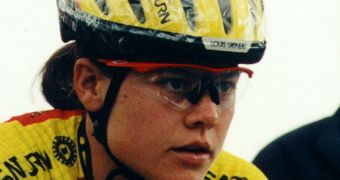The thing about head injuries is that they are not always immediately noticeable. While a fall usually results in a headache immediately after, and then only mild discomfort for a short while, sometimes it can have very serious consequences. A huge array of medical conditions develops in the brain without symptoms, until it's too late to cure them. This is why experts are currently working on protective helmets that could one day inform athletes and others about the severity of their injuries on the spot, LiveScience reports.
This will become possible due to a new generation of sensors that will be capable of analyzing acceleration exerted on the head. A prototype helmet using the new technology has already been produced for skiers, who are notorious for taking very long and painful falls. They descend at very high speeds, and a simple slip can see them tumbling for hundreds of feet, before grinding to a halt. The helmet researchers at the Northwestern University developed for them features no less than seven accelerometers, whose job is to measure the forces acting on the head of its wearer.
The objective is to be able to somehow alert the user or rescue crews about the severity of the injury the skier sustained. “If the level of acceleration for some reason goes above a certain range, [the helmet] is supposed to make an alerting sound or light up a LED,” says NU professor Sinan Muftu. The prototype he and his students created does not yet include the light-emitting diode (LED) electronics it needs, but plans are to install them in the near future. Experts admit the necessity of such devices, saying that the true extent of brain damage following an accident is extremely difficult to determine.
“Patients can feel okay and have a life-threatening injury or patients can be unconscious and have either a life-threatening or non-life threatening injury but simply not be aware of it,” argues Harvard Medical School professor of neurology Alexander Rotenberg. He is working with Muftu on developing the new generation of helmets. The two scientists are very interested in what is known as traumatic brain injury, a type of condition that leaves no apparent brain tissue damage immediately after an accident. The effects of this affliction appear later on, when victims think they're out of the woods. Sometimes, this confidence can be fatal.

 14 DAY TRIAL //
14 DAY TRIAL //